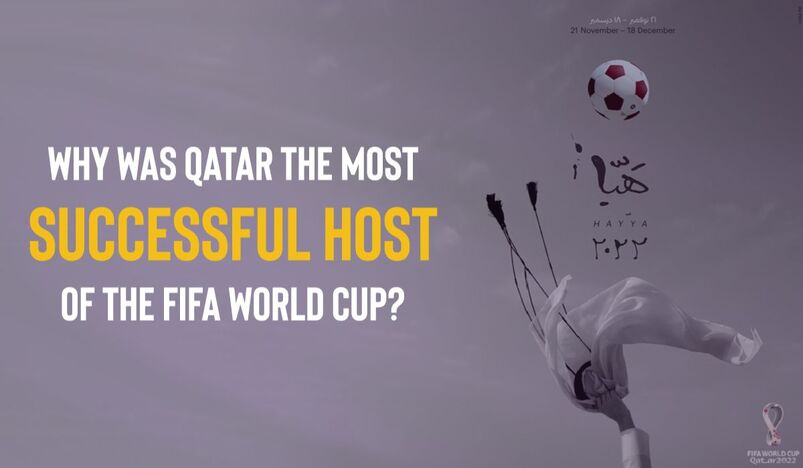
FIFA World Cup Qatar 2022
The FIFA World Cup tournaments have been held every 4 years since the inaugural tournament in 1930 by host country Uruguay. It’s one of the most prestigious sports events with watchers from all around the world that has steadily increased with every world cup. With the 2018 world cup recording nearly half the world population at 3.572 billion watchers, the 2022 world cup surpassed that number with over 5 billion. Out of this, the finals match at the Lusail stadium alone contributed 1.5 billion spectators including the 88,966 audience at the stadium, a whopping 30% of the total number of watchers.
From these numbers alone, it is no surprise that Qatar was voted as the best FIFA World Cup of this century according to the BBC Sport poll, with 78% in their favour. Following this were hosts Japan and South Korea, deemed to be the next best. So, what exactly made Qatar so successful?
Let’s look at how this middle eastern country surpassed everybody’s expectations.
With an area of just 11,586km², Qatar was the first middle eastern nation and one of the smallest nations to ever host the tournament. This was the first in history where the fans could attend more than a single match on the same day. The matches were spread across 8 stadiums, and all but one was within 60km of each other making it the “most compact” world cup in history.
To make this completely accessible, the Ministry of Transportation had made travelling free for the duration of the world cup using the Hayya Card as the only credential required rather than the usual paid travelling card.
Qatar reportedly spent approximately $220 billion which is 16 times more than the previous host, Russia, had spent. Most of their money went into infrastructure since the bid winner was announced in 2010. This included construction of the stadiums, accommodations, the metro, and an entire city (Lusail).
According to a report from The Tass, Qatar had spent $6.5 billion on the stadiums alone, with the installation of the cooling systems taking most of the coverage. This was to ensure a regulated temperature throughout the games for the fans and the players, and to take care of the high-grade pitches.
For accommodation, there were private islands, villas, luxury hotels and apartments built. Doha Metro alone, which connects all the stadiums except Al Bayt in Al Khor, cost $36 billion.
This large expenditure has now left the residents with a newly established home.
An event usually held during the summer months of June/July/August was held in the winter season, making this world cup truly one of a kind. This was done to avoid the harsh heat of the Gulf summers, as winters are a lot more tolerable and pleasant for outdoor activities.
Held from 20th November to 18th December, this was the shortest world cup held since Argentina ’78. Furthermore, it was planned in a way that the exhilarating final was played on Qatar National Day, doubling the celebrations that would take to the streets.
Technology took the center stage at the tournament. Not only did it help in making critical calls, but it kept fans and spectators engaged.
This world cup was an ode to sustainability with Qatar’s stadiums. While most will be reused, one of them will not remain intact:
Qatar was the host of countless firsts. We witnessed records breaking left, right, and center, be it the accessibility and safety for the fans, the viewing experience at 8 world class stadiums or the players’ records. These are perhaps what makes Qatar arguably the best host in FIFA history. Here are some of the many times history was made on the pitch:
Gianni Infantino, the FIFA president, and other prominent sports figures declared the tournament to be the finest ever, owing to the game’s inclusion and diversity.
I think I speak for everyone when I say that this was the most electrifying celebration of football, and what’s better than celebrating the winners on Qatar National Day. Apart from a record of firsts, Qatar has positively set the standard for how a world event should be hosted.
.jpg)
Qatar Secures Place Among the World's Top 10 Wealthiest Nations
.jpg)
Hamad International Airport Witnesses Record Increase in Passenger Traffic

Saudi Arabia: Any visa holder can now perform Umrah

What are Qatar's Labour Laws on Annual Leave?
Leave a comment